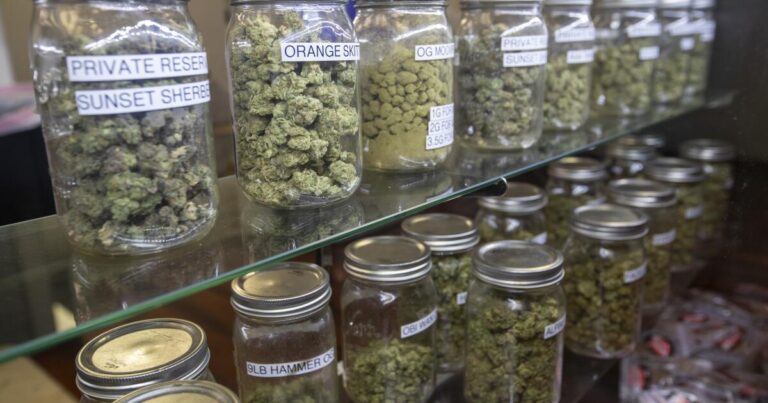The Los Angeles County Board of Supervisors approved a motion on Tuesday calling for illegal marijuana dispensaries to be “deplatformed” and removed from online platforms such as Google and Yelp.
The bill, introduced by Supervisor Lindsay Holbert, directs several county agencies to prepare a written report within three months on potential measures to stop unauthorized cannabis advertising, including online marketing, in unincorporated areas of the county.
The measure, approved 5-0 as part of Tuesday's consent agenda, directs the five county commissioners to write and sign a letter asking several popular websites to “voluntarily cease advertising illegal marijuana dispensaries in their counties.”
The goal is to encourage operators of Yelp, Google and other platforms to distinguish between licensed and unlicensed cannabis stores, helping consumers make informed decisions about where to shop.
Online giants such as Google parent Alphabet and Meta, which owns Facebook and Instagram, have voluntarily removed ads and other content in the past after reports of political misinformation or serious violations of their terms of service, but the latest move in New York shows that forcing these platforms to remove content isn't always easy.
In February, New York Governor Kathy Hockle asked Google and Yelp to delist illegal marijuana dispensaries as the state's recreational marijuana industry began to take off, as the Associated Press reported at the time. Initial results were disappointing, with many illegal dispensaries remaining on the sites and some of New York's fledgling legal dispensaries being repeatedly delisted.
Alphabet, Meta and Yelp did not immediately respond to requests for comment.
Illegal dispensaries circumvent inspection and licensing requirements, don't pay taxes and skirt regulations, and sell at lower prices than legal dispensaries in communities across California, making it difficult for customers to tell which ones are honest.
“Unfortunately, distinguishing between licensed and unlicensed dispensaries has become more difficult than ever,” the bill states. “When searching for cannabis dispensaries, search engines and GPS platforms such as Google and Apple Maps do not distinguish between licensed and unlicensed establishments and instead often display results that include unlicensed dispensaries, thus legalizing problematic establishments.”
The motion cites a February report by the Pew Research Center that said Los Angeles County is home to roughly 1,500 cannabis dispensaries, but only 384 of them are properly licensed as of 2022.
Elsewhere, crackdowns on illegal pharmacies have been successful. San Diego County has prioritized combating illegal operations, effectively eradicating them, The Times reported in June. Meanwhile, Los Angeles County's law enforcement team, which enforces pharmacy laws, only raids two to four pharmacies a month, according to team members. Many pharmacies are back in business within weeks of being raided.
Illegal dispensaries are relatively rare in Michigan, where the state's marijuana industry is booming and aggressive enforcement efforts in recent years have shut down many unlicensed stores, as The Times reported last month.
Several citizens submitted comments ahead of Tuesday's hearing, including Dahlia Brooks, who wrote, “All advertising campaigns for illegal marijuana shops operating in unincorporated areas should be removed from social media. … Advertising on social platforms increases crime, traffic problems and unwanted loitering in our neighborhoods.”
Times reporter Rebecca Ellis contributed to this report.

